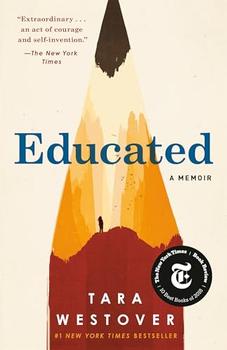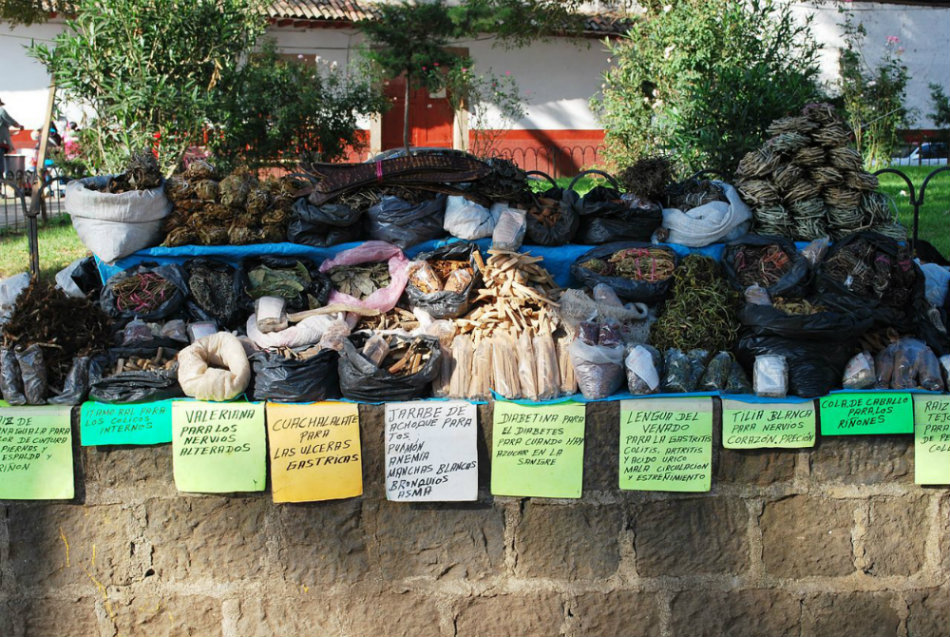Summary | Excerpt | Reading Guide | Reviews | Beyond the Book | Read-Alikes | Genres & Themes | Author Bio

Critics' Opinion:
Readers' Opinion:
First Published:
Feb 2018, 352 pages
Paperback:
Feb 2022, 368 pages
 Book Reviewed by:
Book Reviewed by:
Rebecca Foster
Buy This Book
This article relates to Educated
Educated author Tara Westover's Idaho family runs Butterfly Express, a successful business selling essential oils and other herbal remedies. Her mother, LaRee Westover, trains herbalists and is the author of a book on herbalism, Butterfly Miracles with Essential Oils. Throughout her childhood, Westover was treated with foraged herbs instead of pharmaceuticals. "For as long as I could remember, whenever I was in pain, whether from a cut or a toothache, Mother would make a tincture of lobelia and skullcap," she writes. "It had never lessened the pain, not one degree. Because of this, I had come to respect pain, even revere it, as necessary and untouchable." It wasn't until she was in college that she tried painkiller pills for the first time.
Herbalism, the ancient practice of using plants for medicinal purposes, also has spiritual associations. Archaeological evidence suggests that herbal medicine was practiced as early as 60,000 years ago by Neanderthals. Today it is considered one branch of alternative or complementary medicine. It is still widely practiced in Asia and Africa, and occupies a niche in Western markets. In some cases the treatments also involve minerals and animal products, as in traditional Chinese medicine or Indian Ayurvedic medicine. Although many pharmaceuticals are derived from chemicals found in the natural environment (such as plants and fungi), they have to undergo stringent clinical testing, whereas herbal remedies usually have traditional worth but no objectively proven efficacy. They can be administered as herbal teas, topical salves, tinctures, or via aromatherapy.

The medical profession's suspicion of herbalism is well founded: there is uncertainty about the treatments' dosage and purity, and various herbs and drugs can have dangerous interactions. To try to uphold minimal standards of treatment, some countries offer formal training for herbalists. In the UK, the National Institute of Medical Herbalists certifies graduates of seven university courses in herbal medicine. It requires members to have a minimum of 500 hours of supervised clinical training, and guarantees that a code of ethics is maintained and any complaints are dealt with efficiently. The School of Herbal Medicine in Somerset runs a six-year program of on-the-job education that leads to a professional qualification.
In the USA, herbal remedies are considered dietary supplements, which are monitored by the Food and Drug Administration to ensure adherence to good manufacturing practices. As long as companies do not make specific medical claims for their products, they do not have to provide any proof of efficacy or safety. However, if a product is found to have damaging effects, the FDA can pull it from the market. In Canada, guidelines for herbal remedies are issued by the Natural and Non-prescription Health Products Directorate.
Herbalism may not command the same respect as medical science in some quarters, but it has been a part of human history for thousands of years and is practiced around the world. It cannot be ignored.
Picture of street vendor selling herbal remedies in Patzcuaro, Michoacan by Thelma Datter
Filed under Medicine, Science and Tech
![]() This "beyond the book article" relates to Educated. It originally ran in March 2018 and has been updated for the
February 2018 edition.
Go to magazine.
This "beyond the book article" relates to Educated. It originally ran in March 2018 and has been updated for the
February 2018 edition.
Go to magazine.





The House on Biscayne Bay
by Chanel Cleeton
As death stalks a gothic mansion in Miami, the lives of two women intertwine as the past and present collide.

The Flower Sisters
by Michelle Collins Anderson
From the new Fannie Flagg of the Ozarks, a richly-woven story of family, forgiveness, and reinvention.

The Funeral Cryer by Wenyan Lu
Debut novelist Wenyan Lu brings us this witty yet profound story about one woman's midlife reawakening in contemporary rural China.
Your guide toexceptional books
BookBrowse seeks out and recommends the best in contemporary fiction and nonfiction—books that not only engage and entertain but also deepen our understanding of ourselves and the world around us.